253 results in Studies in German Literature Linguistics and Culture

The Intersection of Science and Literature in Musil's 'The Man Without Qualities'
-
- Published by:
- Boydell & Brewer
- Published online:
- 05 February 2013
- Print publication:
- 14 February 2005

Imperial Messages
- Orientalism as Self-Critique in the Habsburg 'Fin de Siècle'
-
- Published by:
- Boydell & Brewer
- Published online:
- 05 February 2013
- Print publication:
- 01 June 2011

Hermann Broch, Visionary in Exile
- The 2001 Yale Symposium
-
- Published by:
- Boydell & Brewer
- Published online:
- 05 February 2013
- Print publication:
- 03 March 2003
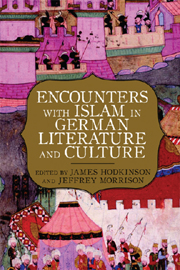
Encounters with Islam in German Literature and Culture
-
- Published by:
- Boydell & Brewer
- Published online:
- 05 February 2013
- Print publication:
- 01 December 2009

Schiller the Dramatist
- A Study of Gesture in the Plays
-
- Published by:
- Boydell & Brewer
- Published online:
- 05 February 2013
- Print publication:
- 15 July 2009

Perspectives on Gender in Post-1945 German Literature
-
- Published by:
- Boydell & Brewer
- Published online:
- 05 February 2013
- Print publication:
- 01 October 2009
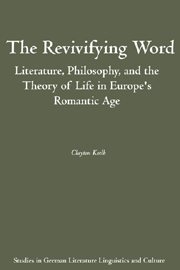
The Revivifying Word
- Literature, Philosophy, and the Theory of Life in Europe's Romantic Age
-
- Published by:
- Boydell & Brewer
- Published online:
- 05 February 2013
- Print publication:
- 01 October 2008

German Literature of the 1990s and Beyond
- Normalization and the Berlin Republic
-
- Published by:
- Boydell & Brewer
- Published online:
- 05 February 2013
- Print publication:
- 15 January 2005

The Rediscovered Writings of Veza Canetti
- Out of the Shadows of a Husband
-
- Published by:
- Boydell & Brewer
- Published online:
- 05 February 2013
- Print publication:
- 02 April 2007
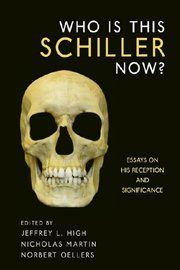
Who Is This Schiller Now?
- Essays on his Reception and Significance
-
- Published by:
- Boydell & Brewer
- Published online:
- 05 February 2013
- Print publication:
- 20 May 2011

Nolten the Painter
- A Novella in Two Parts
-
- Published by:
- Boydell & Brewer
- Published online:
- 05 February 2013
- Print publication:
- 01 March 2005
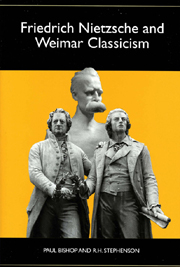
Friedrich Nietzsche and Weimar Classicism
-
- Published by:
- Boydell & Brewer
- Published online:
- 05 February 2013
- Print publication:
- 24 November 2004

The Technological Unconscious in German Modernist Literature
- Nature in Rilke, Benn, Brecht, and Döblin
-
- Published by:
- Boydell & Brewer
- Published online:
- 05 February 2013
- Print publication:
- 01 May 2008
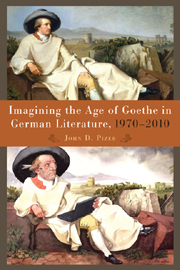
Imagining the Age of Goethe in German Literature, 1970–2010
-
- Published by:
- Boydell & Brewer
- Published online:
- 05 February 2013
- Print publication:
- 01 August 2011
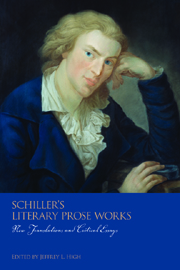
Schiller's Literary Prose Works
- New Translations and Critical Essays
-
- Published by:
- Boydell & Brewer
- Published online:
- 05 February 2013
- Print publication:
- 01 November 2008

Heinrich von Kleist and Jean-Jacques Rousseau
- Violence, Identity, Nation
-
- Published by:
- Boydell & Brewer
- Published online:
- 05 February 2013
- Print publication:
- 01 December 2012

In the Shadow of Empire
- Austrian Experiences of Modernity in the Writings of Musil, Roth, and Bachmann
-
- Published by:
- Boydell & Brewer
- Published online:
- 05 February 2013
- Print publication:
- 01 September 2008
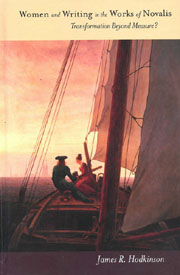
Women and Writing in the Works of Novalis
- Transformation beyond Measure?
-
- Published by:
- Boydell & Brewer
- Published online:
- 05 February 2013
- Print publication:
- 03 December 2007

Politics and Culture in Twentieth-Century Germany
-
- Published by:
- Boydell & Brewer
- Published online:
- 05 February 2013
- Print publication:
- 01 July 2003
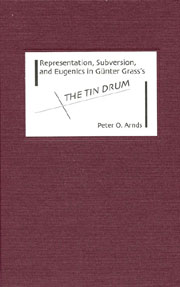
Representation, Subversion, and Eugenics in Günter Grass's 'The Tin Drum'
-
- Published by:
- Boydell & Brewer
- Published online:
- 05 February 2013
- Print publication:
- 06 August 2004

